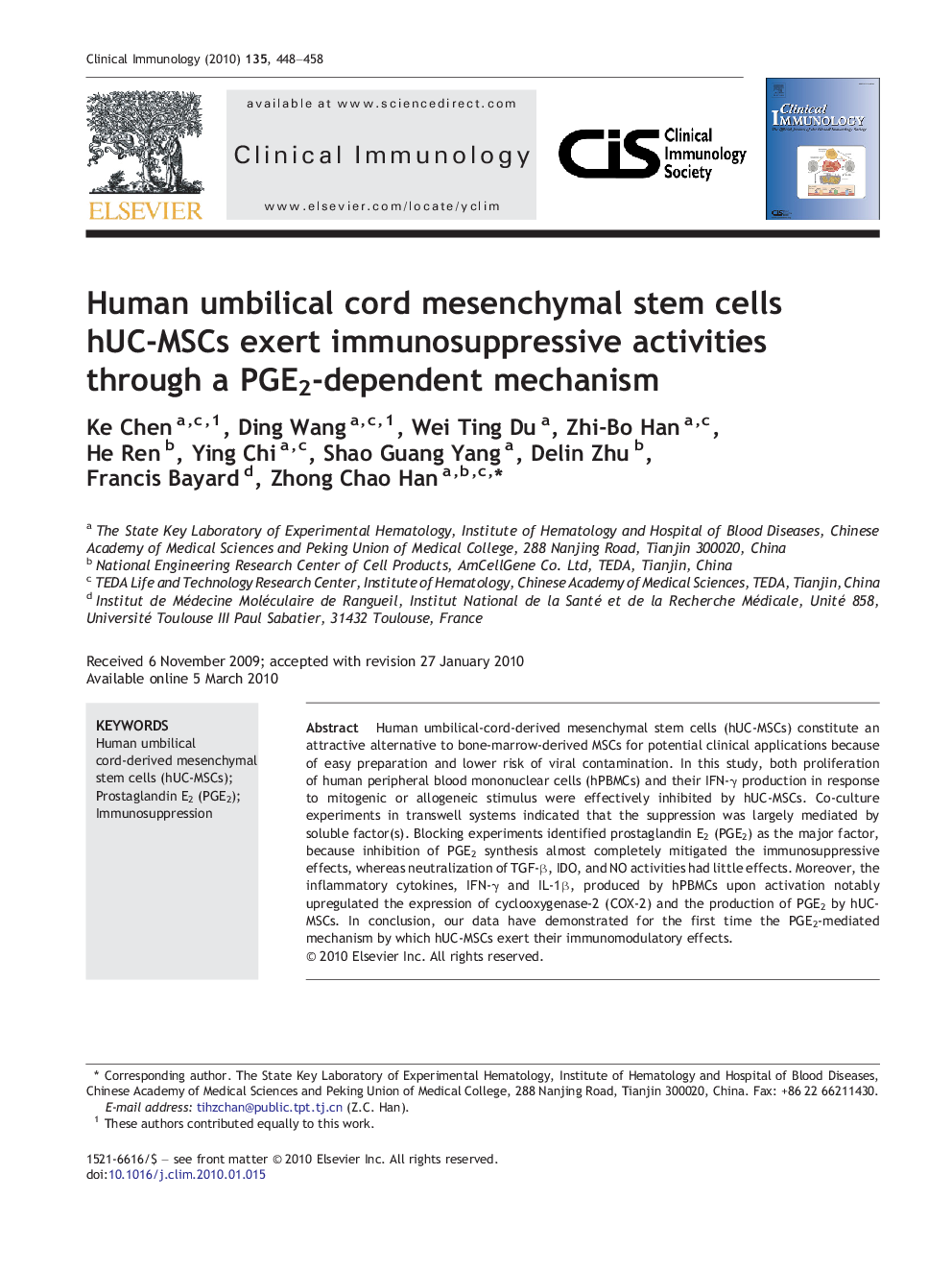| Article ID | Journal | Published Year | Pages | File Type |
|---|---|---|---|---|
| 3257778 | Clinical Immunology | 2010 | 11 Pages |
Human umbilical-cord-derived mesenchymal stem cells (hUC-MSCs) constitute an attractive alternative to bone-marrow-derived MSCs for potential clinical applications because of easy preparation and lower risk of viral contamination. In this study, both proliferation of human peripheral blood mononuclear cells (hPBMCs) and their IFN-γ production in response to mitogenic or allogeneic stimulus were effectively inhibited by hUC-MSCs. Co-culture experiments in transwell systems indicated that the suppression was largely mediated by soluble factor(s). Blocking experiments identified prostaglandin E2 (PGE2) as the major factor, because inhibition of PGE2 synthesis almost completely mitigated the immunosuppressive effects, whereas neutralization of TGF-β, IDO, and NO activities had little effects. Moreover, the inflammatory cytokines, IFN-γ and IL-1β, produced by hPBMCs upon activation notably upregulated the expression of cyclooxygenase-2 (COX-2) and the production of PGE2 by hUC-MSCs. In conclusion, our data have demonstrated for the first time the PGE2-mediated mechanism by which hUC-MSCs exert their immunomodulatory effects.
